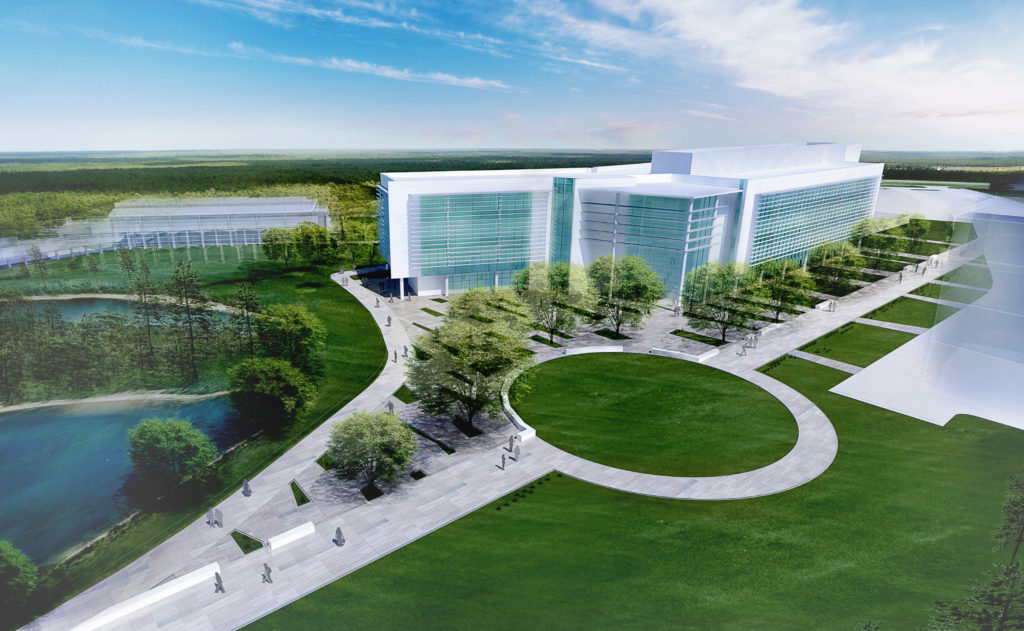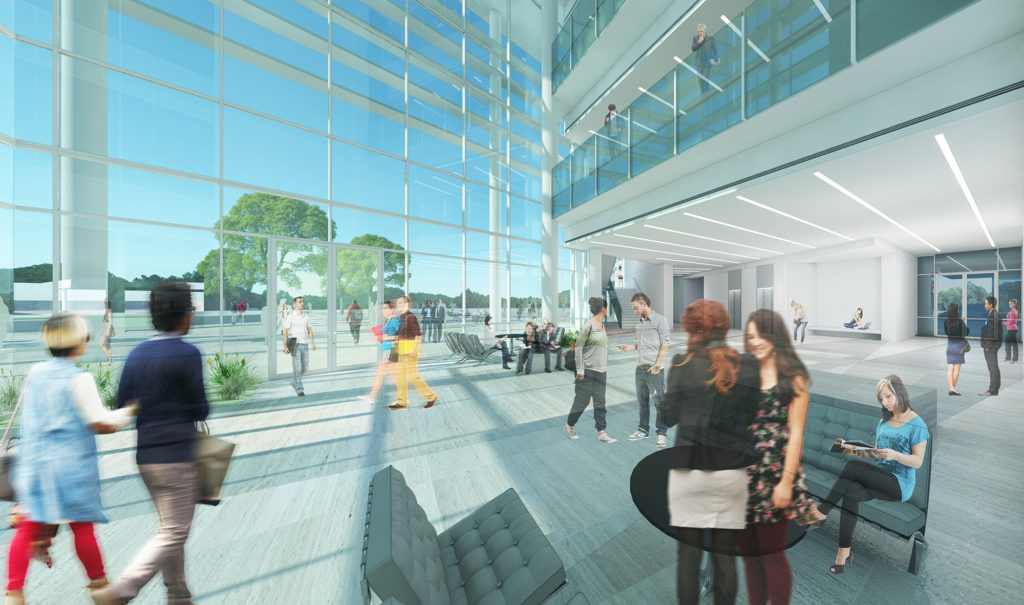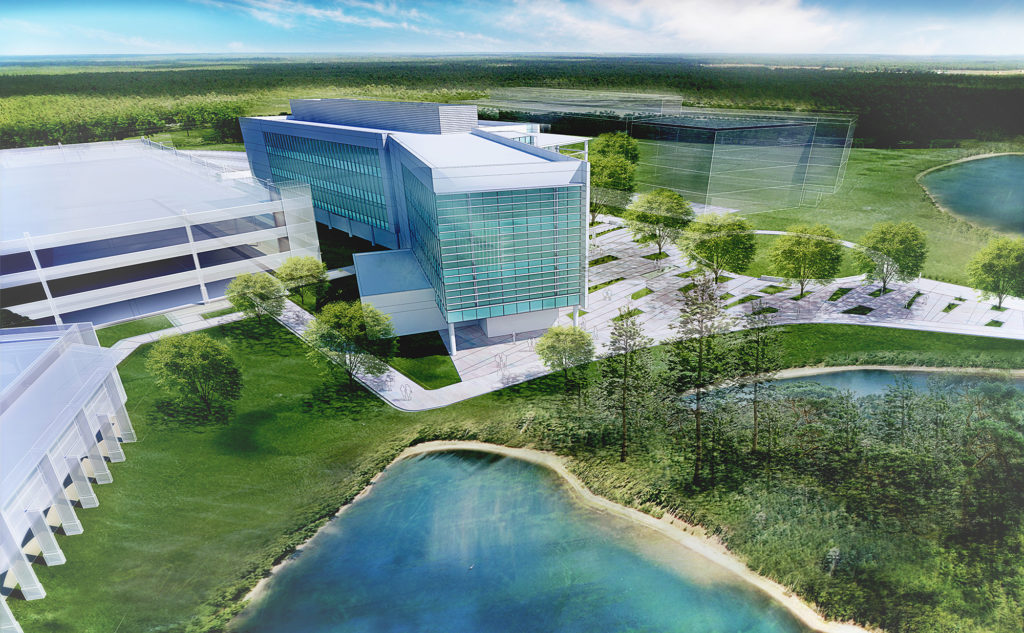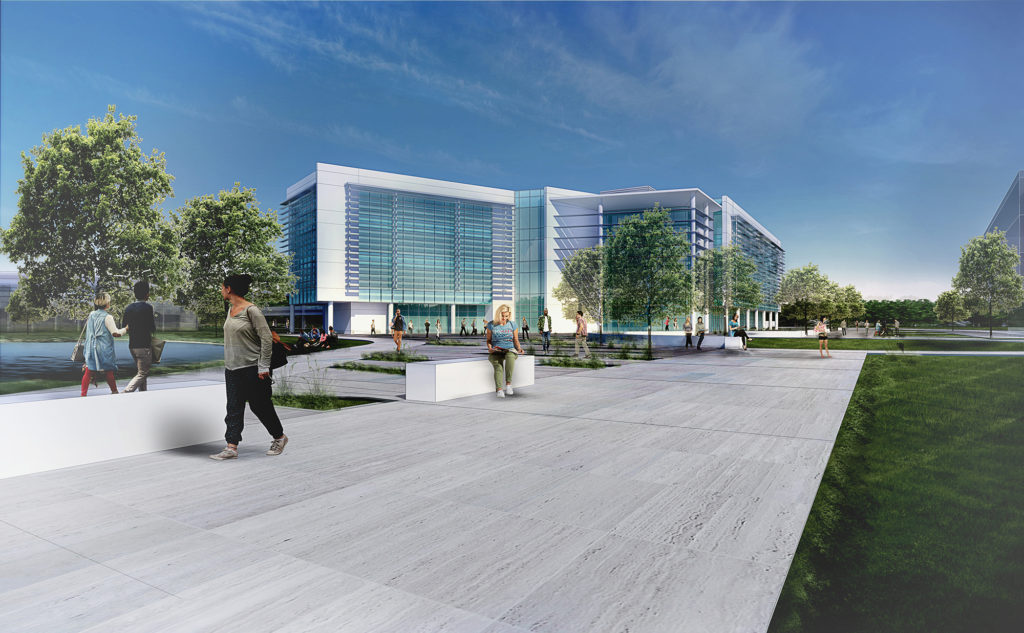
Florida Gulf Coast University (FGCU) broke ground on the new home for The Water School Thursday morning. The 117,000-square-foot facility will be the largest academic building on campus. Half of the space will be research labs dedicated to the school’s vital work on water quality issues in Southwest Florida.
“This building and The Water School will be a place where investments can be made and solutions can be found,” said FGCU President Mike Martin. “We can interact with partners from across the state, from across the nation and around the world. It’s not just water in the most direct way, but also health implications of water, community development implications of water, long-term impacts on the environment, and, clearly, the impact on the economy.”

Slated to open in the fall of 2021, the building will simultaneously support research and the professional preparation students need to tackle real-world problems. In addition to 58,600 square feet of research lab space, the four-story structure will also provide classrooms (23,400 square feet) and teaching labs (15,000 square feet). The new academic center will also bring most of The Water School’s core faculty and staff under one roof.
“This building is an exciting new resource for the university,” said Greg Tolley, executive director of The Water School at FGCU. “We want it to be a public space. There will be meeting rooms where we can invite people from local communities to come in and talk about issues of importance here in Southwest Florida. We want people to think of this as being Southwest Florida’s building as well.”

Since it was announced March 22, The Water School has focused on the region’s water problems and what’s required to solve them. From pioneering work with ciguatera fish poisoning to the study of bacteria and algae in local waters, the impact of climate change on Florida’s shores to the implementation of educational programs in local middle schools, The Water School’s influence is far reaching. But it’s just the start as The Water School is adding to its faculty expertise in a number of subjects and disciplines.
“This space is more than just a space,” said Tolley. “It will also be the people who will be working there. They are interdisciplinary faculty and staff from across the university looking at water issues from a variety of approaches. This will allow us to have an integrated approach to solving our water issues.”

The Water School’s new home is the campus’ ninth academic building. It will be built next to Parking Garage 1, a stone’s throw from Sugden Hall. The project budget is $57.9 million.
Dozens of dignitaries attended the groundbreaking. In addition to members of the FGCU Board of Trustees, state Senators Lizbeth Benacquisto and Kathleen Passidomo and state Representatives Heather Fitzenhagen and Ray Rodrigues celebrated the new building. Community partners – Daniel Andrews, Captains for Clean Water; Amelia Horadam, Rookery Bay National Estuarine Research Reserve; Catherine Bergerson, Conservancy of Southwest Florida; Ryan Orgera, Sanibel-Captiva Conservation Foundation – also welcomed the new facility.
“Students will get exposed not only to laboratory work, where they can do the science, but they will learn about policy and education with respect to water in the region, and they will be interacting with local partners through internships and senior projects,” Tolley said. “So the building is a laboratory for students to get hands-on experience.”
To learn more about The Water School, visit https://fgcu.edu/thewaterschool.